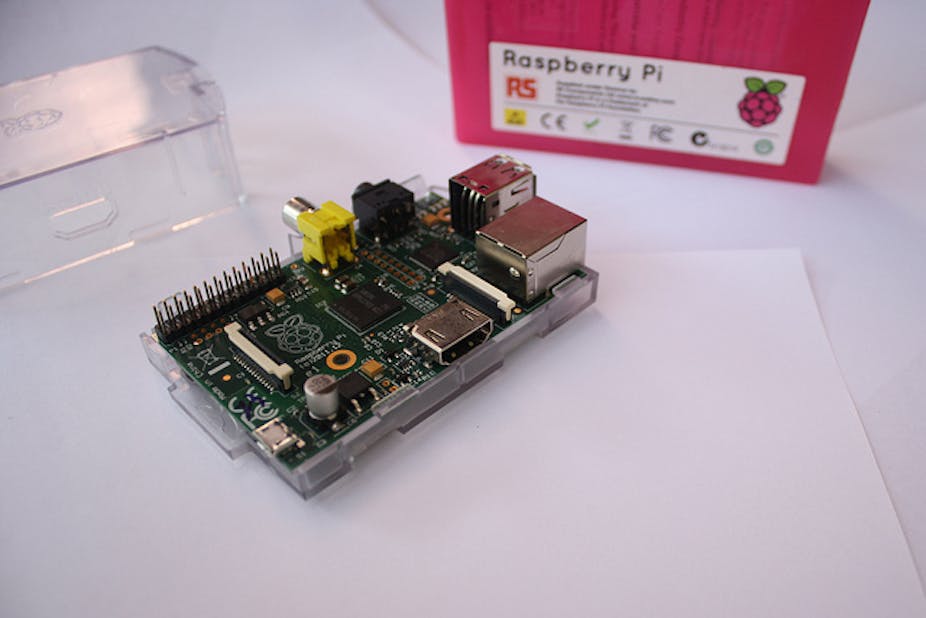This week the Raspberry Pi Foundation announced that they had manufactured 1 million Raspberry Pi computers in the UK. In an age when the very thought of manufacturing anything outside of China would be considered foolhardy, the supply of these low cost computing devices from a factory in South Wales showed that it is still possible to manufacture technology in a developed western nation, albeit a fairly basic no-frills device.
The Raspberry Pi Foundation was established by a group of academics at the University of Cambridge’s Computer Laboratory who were concerned with the general decline in numbers of students applying to computer science. They felt that they could tackle this by providing a means for teachers at primary and secondary school to introduce programming and computing skills training. As such the Raspberry Pi was developed as a very cheap and expandable computing device that could plug into a TV.
The Raspberry Pi is runs a version of the Linux operating system which provides support for developer tools and other software. Children in particular were to interact with a development environment called Scratch which was designed by the MIT Media Lab as a creative environment that would allow children in particular to learn basic programming skills. In early 2013, Google got behind this idea and funded the supply of 15,000 Pis to schools in the UK.
Despite the educational ideal, the majority of the 1.75 million Pis sold have gone to middle-aged hobbyists who have put the devices to a plethora of uses. These range from media players to a re-enactment of Felix Baumgarten’s skydiving world record using a Raspberry Pi equiped teddy bear called Babbage who made a leap from 39,000 meters, transmitting data and video along the way.
This is not the first time someone has tried to create a low cost computer to try to improve computing literacy. In the early 1980’s the BBC teamed with the Acorn Computer company to create a personal computer called the BBC Micro. Although popular with schools in the UK (80% of schools owned one), they were still relatively expensive at the time and their integration into the curriculum was limited by cost and more importantly by lack of skills required to teach using them. Eventually the Acorn computers were eclipsed by PCs running Microsoft’s DOS and Windows but the development gave rise to the ARM processors that power most smartphones today.
Although on the surface, the encouragement of computer science skills in school children may be seen as a laudable goal, one would have to ask whether these efforts are likely to succeed. More importantly, is the declining number of students taking courses in computer science simply an indicator that subject’s time has passed?
This question has been the source of much debate in the IT industry, with people arguing that skills required for successful developers are not the highly technical and theoretical ones that come from a degree in computer science but those of problem solving, collaboration and communication.
Another problem with any sort of degree is that the technologies used by industry change so rapidly that anything taught at university has a very short shelf-life, making continuous self-training necessary in any case.
Others would argue that programming is a craft which requires little in the way of more formal training. Bill Gates and Mark Zuckerberg were both self-taught programmers who saw little value in completing their degrees.
In any event, it is unlikely that the Raspberry Pi will replace the home PC or tablets that are rapidly becoming their mobile replacement. The Pi will always struggle to match the simplicity and richness of a PC, iPad or Android tablet’s interface and access to millions of apps. Teachers are only now coming to grips with the ubiquity of laptops and tablets in the class and are unlikely to invest even more time on learning a new environment and technology.
While the manufacture of a million Raspberry Pis in the UK is an achievement worth marking, it is unlikely to make the Chinese technology manufacturers feel threatened in any way.

